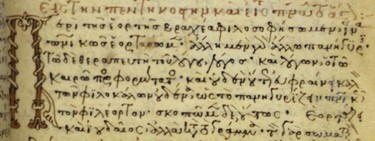This article is for those who wish to read and translate Greek manuscripts as close to the original as possible.
Sometimes a thousand years is closest to the original, which means the copy was written somewhere between the tenth and thirteenth centuries. If this is the case, the copy was written in the Greek minuscule format.
Greek minuscule is a handwriting format that was much more efficient than its earlier counterpart. It used a smaller, and much more rounder style, and ligatures — that is the combining of letter combinations into one symbol; symbols for inflectional word endings, and abbreviations. Think of it as traditional handwriting combined with a shorthand texting format.
